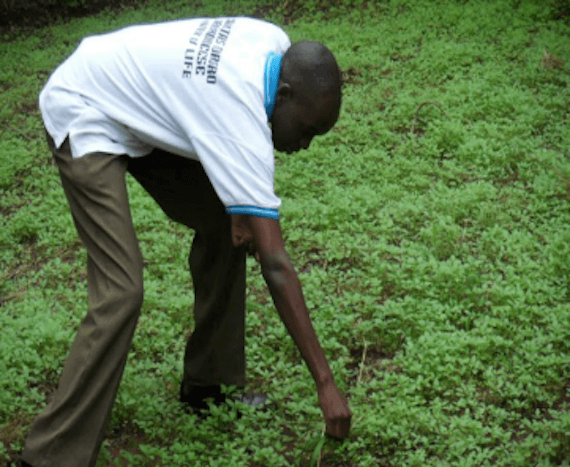
Across Africa smallholder farmers are faced with a number of challenges brought by climate change. In Uganda weather fluctuations are affecting harvests and smallholder farmers’ incomes. Co-operatives are helping to address some of these concerns by promoting climate-friendly agriculture.
Uganda has different bio-physical and climate variations, which means that growing conditions vary throughout the country. Climate change is expected to bring more extreme and frequent periods of intense rainfall or episodes of drought. These changes could have a significant impact on agriculture, food security and water resources.
An assessment report by the US Agency for International Development concluded that rural Ugandan households, which make over 80% of the population, are vulnerable to climate change.
Around 3,000 farmers have been practicing climate-friendly agriculture over the last 12 months. These practices included minimum tillage, using mulching and covering crops to reduce water evaporation, as well as harvesting and storing water for use during dry periods, using energy-efficient stoves and promoting agro-forestry. While there measures cannot tackle all climate-related challenges farmers face, they can help reduce their vulnerability.
Samuel Sentumbwe is climate smart agriculture project coordinator at the Uganda Cooperative Alliance. In an article for the International Co-operative Agriculture Organisation, he explains how the practices have helped improve the livelihoods of 50% of farmer members of the Malongo and Kasambya Area Cooperative Enterprise (ACE). One of the farmers that has benefited from this programme is 62-year old Mujuni Herbert. “During my childhood days we used to fetch firewood for cooking food, the wood was always available until the early 1990s when most of the forests had been cleared due to the increased usage by the people in the villages. Today, we have to buy firewood because almost all the natural forests which were sources of free fire wood are gone,” he said.
With support from the Uganda Cooperative Alliance and the Eastern Africa Farmers Federation, farmers learned how to construct and use energy saving stoves and making charcoal briquettes out of crop waste. “I set up 2 sets of energy saving stoves and my expenditure on firewood has reduced by almost 50%,” added Mr Herbert. Several members of the co-operative are now also using “early maturing trees”, for firewood. These trees mature in two to three years, as opposed to the 10 years required by other species.
“This pilot project funded by the Norwegian Agency for Development Cooperation has provided overwhelming evidence of the solutions that are presented by Climate Smart Agricultural interventions. These practices should however, be scaled out for larger and better impact on the communities as part of the wider mitigation strategies to climate change,” explained Mr Sentumbwe.




